Your air conditioning system maintains a cool and comfortable interior temperature. It is an important vehicle component since it works directly with the motor engine. Similar to other systems, the AC may be prone to operational problems. The first sign of a malfunctioning car AC is leaking water. We have researched everything you need to know about the several reasons why this occurs.
Your automobile's AC may leak water because there may be a problem within the air conditioning system. These are the main causes why your AC is dripping water:
- Blocked condensate drain pipe
- The drain is not properly attached to the ventilation system
- Low refrigerant level
- Dirty air filters
- Broken drain pan
A leaking car air conditioner is a cause for concern. This situation may arise because there is an issue within your AC's system. Fortunately, we are here to help you understand the entire concept of this leak.
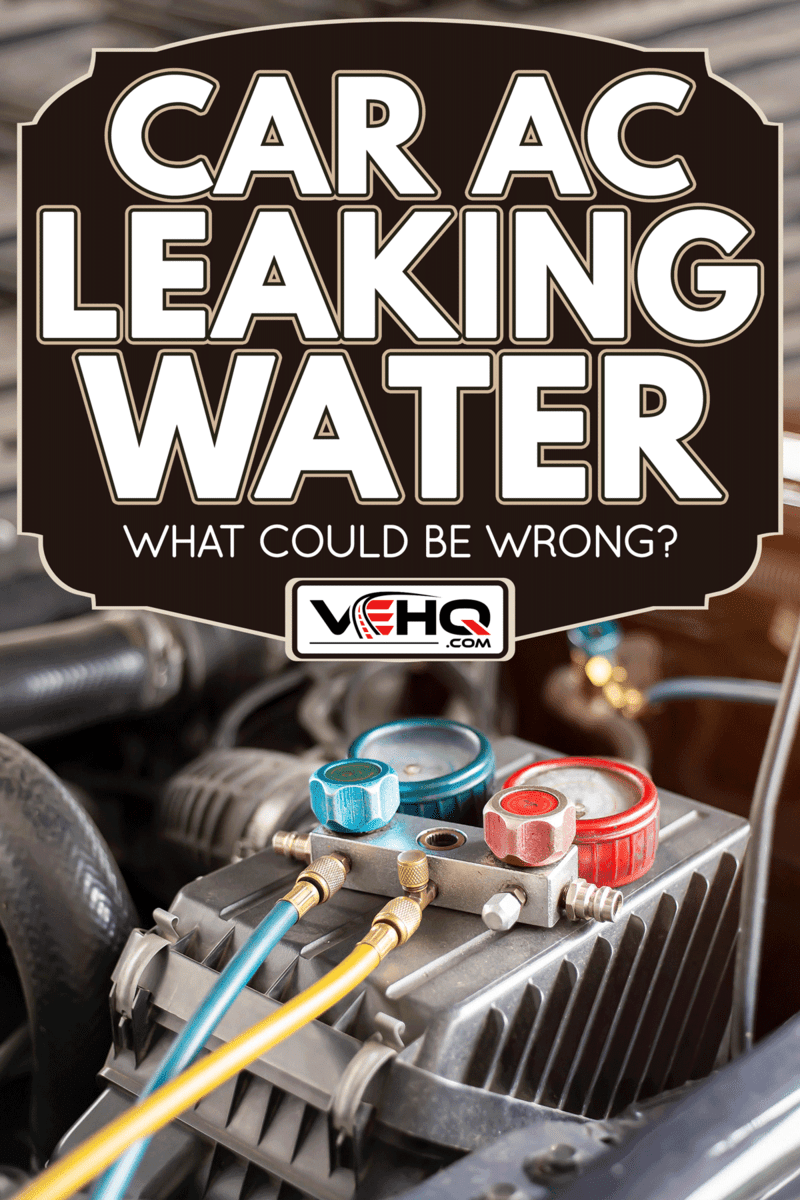
General AC Parts and Functions
Before we proceed to the main reasons, allow us to familiarize you with the general parts and functions of your vehicle's air conditioning system. Car AC units have these essential components: the compressor, condenser, and evaporator
The compressor sends vapor to the condenser, which in turn converts it into a liquid that evaporates and cools your car's interior. The evaporator determines the amount of moderated air that circulates and keeps the desired temperature level.
Depending on your car's make and model, parts may vary, and other components are installed. The basic principle of air conditioning, however, contains these basic components.
What are the main reasons your car AC is leaking water?
1. Blocked Condensate Drain Pipe
Excess water vapor from the condenser and evaporator is meant to be drained into the condensate pipe. If the said pipe is blocked or obstructed by dirt or debris, water that is unable to flow leaks inside the vehicle.
In order to fix this, locate the condensate pipe, then squeeze or bend the hose to release any dirt and debris build-up.
2. The drain is not properly attached to the ventilation system
If your car's drain is not properly attached to the ventilation system, there will be no way for the water to properly drain outside your vehicle. Because of that, the water will find another passage where it can flow, in this case, your AC. This usually happens when your car is relatively old and the sealed connections become loose.
This issue is an easy fix. Find the condensate drain which is usually located under the evaporator. Simply attach the said component properly to the ventilation system.
3. Low Refrigerant Level
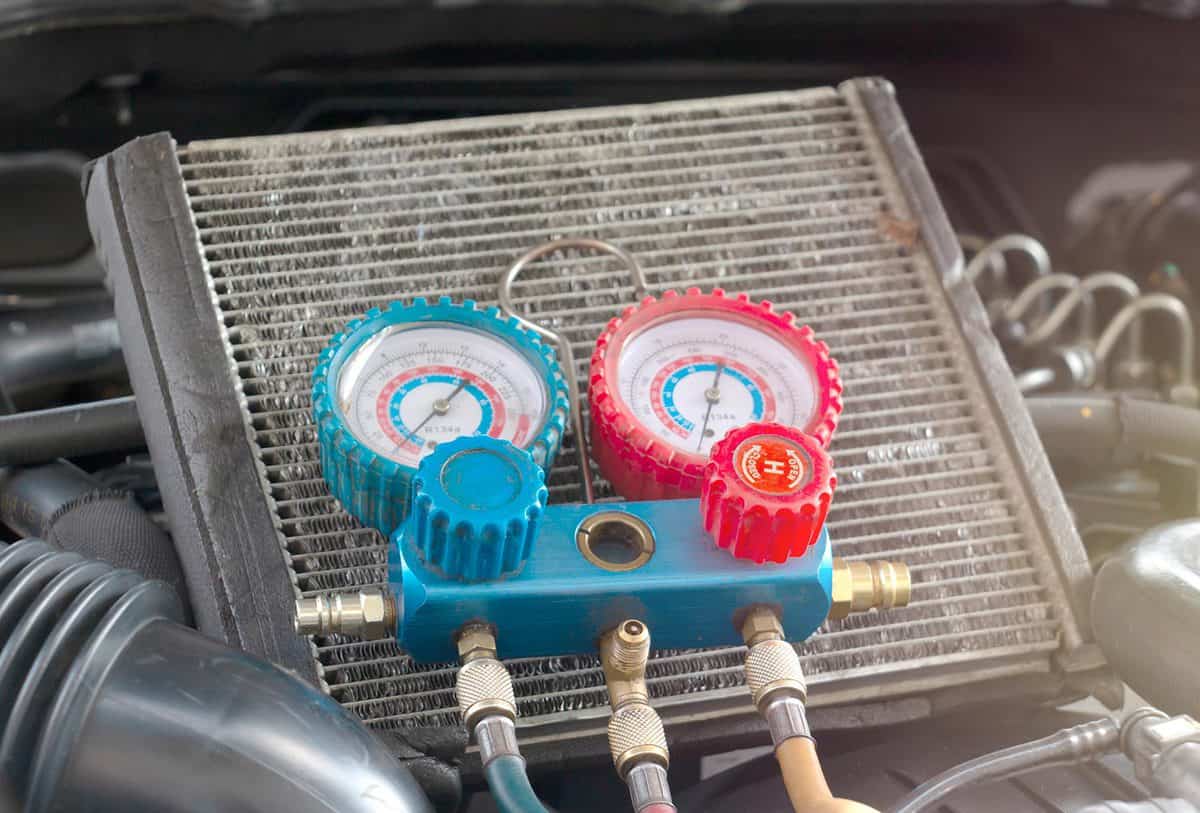
A low refrigerant level only happens if there is a leak within the system. This situation hinders the refrigerant from cooling the heated air because the pipe where it is supposed to flow is damaged. R134a or Tetrafluoroethane is the refrigerant in most cars on the road today.
One sign that your car's refrigerant is low is when it starts blowing off warm air inside the cabin. It is ideal to have it serviced by auto repair professionals in order to properly refill the refrigerant.
4. Dirty Air Filters
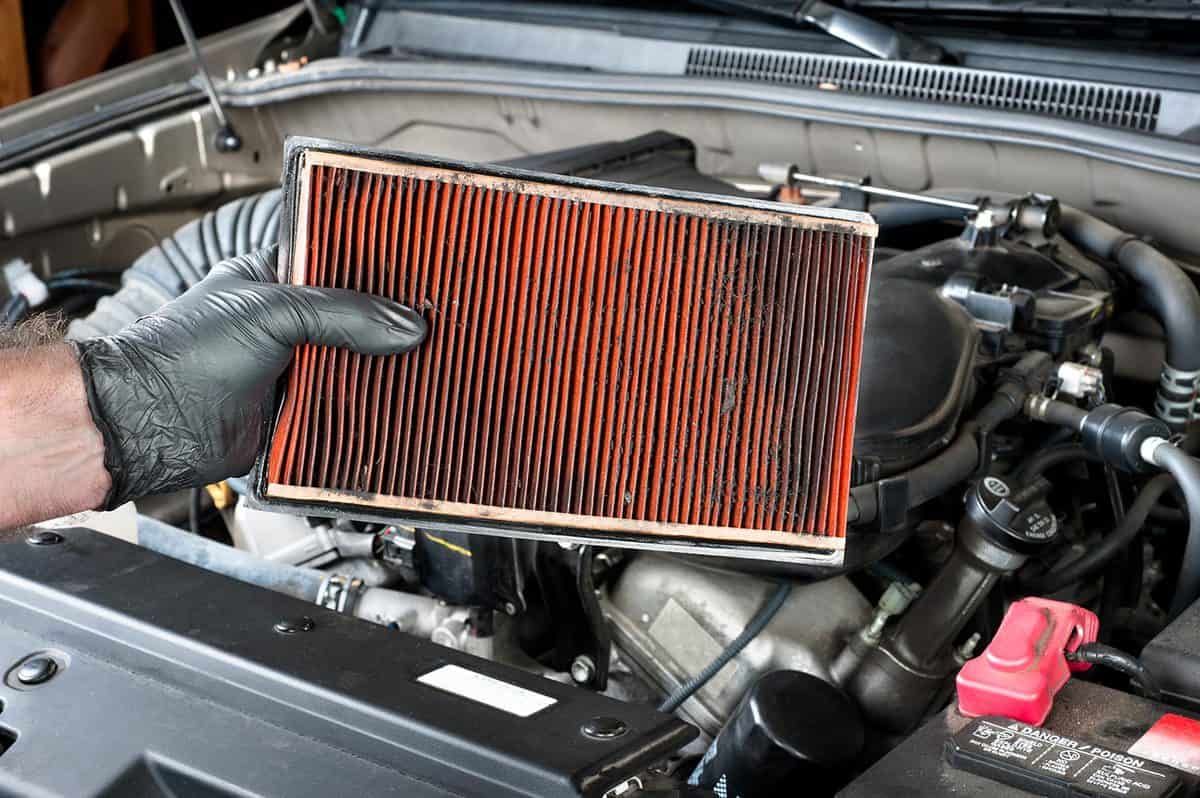
Dirty air filters have already accumulated any dirt and debris. This restricts the airflow within the system. When this happens, your evaporator coils (that cool the air) will only receive a small amount of heated air. This will cause the coils to freeze. Once it freezes, condensation occurs (melted ice), and water will leak through your vehicle's AC system.
Remember to keep your car's air filter clean to avoid this problem.
5. Broken Drain Pan
The condensate drain pan is responsible for holding or collecting excess water. If the pan is broken, it may cause water to leak through your vehicle's air conditioner. What you can do is replace the broken drain pan.
How does a car's AC function?
Certain components of your vehicle should be functioning optimally in order for your car's air conditioning system to work properly.
Refrigerant Level
Your vehicle's air conditioning system needs a refrigerant to produce cool air. A refrigerant is a vapor-liquid chemical compound that is being transformed into cold air.
A refrigerant level is simply an indicator of the cooling capacity of your car. If it is low, it could be a sign that there is a leak in your vehicle's refrigerant pipe.
Evaporator Coils

In order for your automobile's AC to produce cool air, the refrigerant needs to go through the evaporator coils. These coils regulate the AC temperature by cycling the refrigerant inside your vehicle - converting warm air into cold air.
To put it simply, the coils are responsible for cooling the refrigerant.
Condenser Coils
The condenser coil turns gas into liquid form. During this process, heat is created as a byproduct. In properly operating vehicles, the heat then dissipates into the outside air.
Compressor
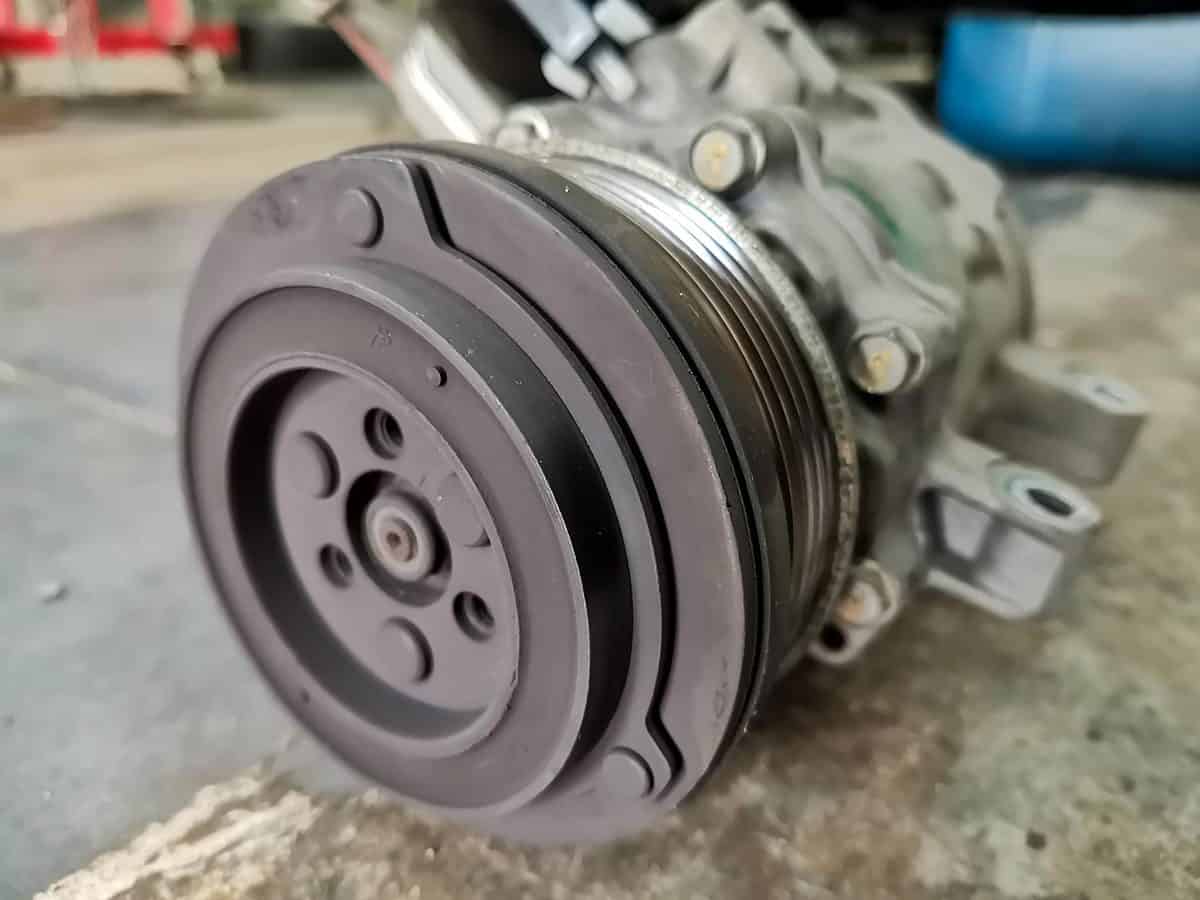
The compressor is responsible for forcing the air into the system; it receives power directly from the engine via the vehicle's drive belt. It is the most overworked of all the components, and as such, it may wear out sooner.
To recap: The compressor forces air into the condenser, which transforms the air into liquid, and the evaporator then circulates it into your car's interior.
What are some other problems car owners may encounter?
Aside from concerns with your car's air conditioning, we are including some other common problems car owners may encounter so that you will have an idea of how to address the issue.
The vehicle won't start
There are several reasons for this. First, a failed starter may be the cause. It sends an electric current that sets the engine in motion. If the part is spent or corroded, all you would hear is a click. Replacing the starter is usually the only remedy. To prevent this, do regular maintenance checks on the components or your starter motor.
A dead battery is another common reason your car won't start. This happens when power is totally drained or the connections are faulty. Simply secure the battery terminals, and the engine will start. Take note of your battery's operating duration. They usually last between three to five years. Purchase a new one before the previous battery expires.
Also, check the condition of your alternator, it keeps your battery charged and recurring problems could be due to its failure or poor condition.
Poor engine performance
If you notice that your car is running at lower speeds and less power, the spark plugs could be the reason. They have a shelf life and have to be tuned up regularly. Oil leaks may also cause your engine to run poorly. Check for any sign of leaking along the oil pipes, the engine itself, and even your driveway.
Overheating
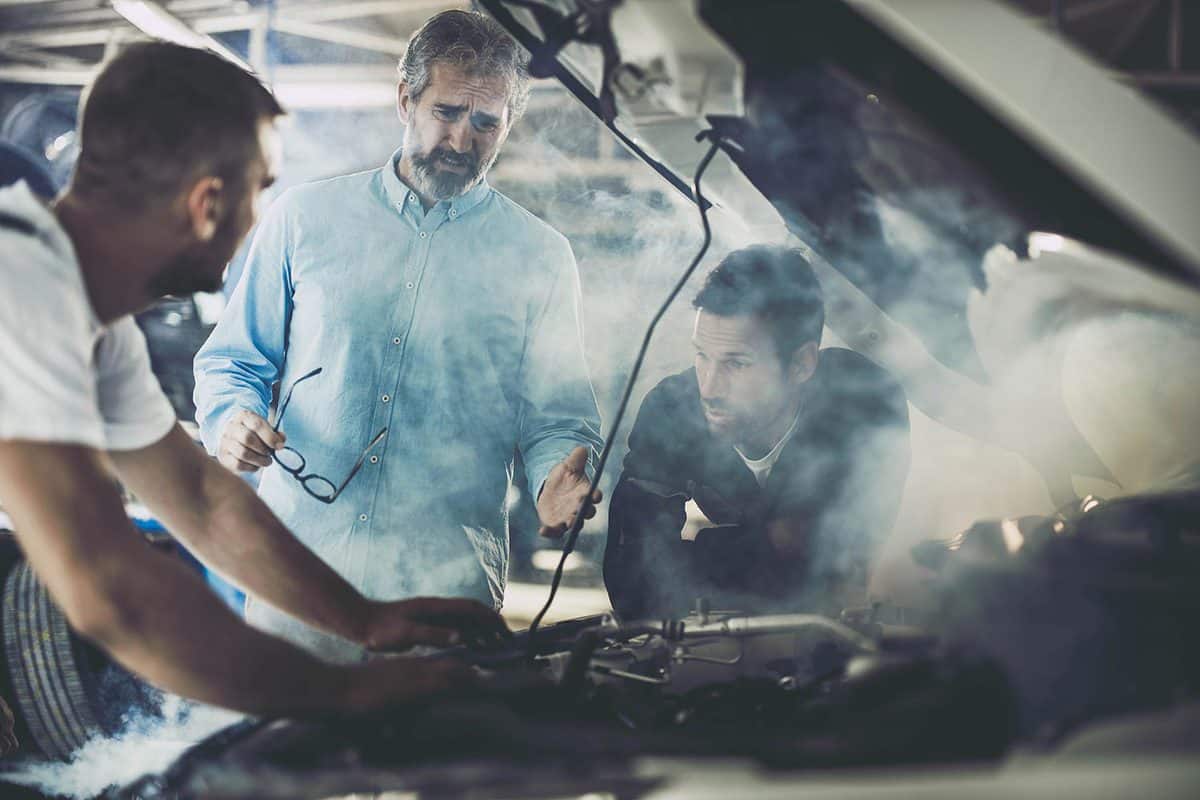
When fumes suddenly appear and escape through the vehicle's hood, your car is overheating. A leak in the radiator is the most common reason for this. Again, regularly checking your cooling system is the best way to avoid this. Monitor the water level and coolant content.
What car issues should you address immediately?
Finally, the following is a list of car problems that should be addressed immediately because major issues and costly maintenance jobs will arise if not taken care of.
Fluid leaks
Your car utilizes several fluids with specific functions in order to operate properly. Have your vehicle checked immediately if you notice any sign of leaking. The usual substances that leak include oil, coolant, brake, and transmission fluids. Damage in one part might cause the entire engine, cooling brake, and transmission systems to fail altogether.
Brake noise
Since your brakes are the car's most important safety feature, stop right away if you hear grinding or squealing noises. This could mean your brake pads are worn and need replacing. The brakes need the most attention and regular maintenance.
Engine noise
Knocking noise from under the hood may indicate serious problems. The engine bearings, pistons, or a combination of parts cause this to occur. Most motorists ignore and dismiss the problem as minor, associating it with wear and tear. If it is not addressed soon, further damage can result, or worse, total engine failure.
Blue exhaust
A vehicle that produces blue exhaust smoke probably has an internal leak that causes the oil to be burnt with the fuel. Constantly losing oil results in lubrication problems and eventual engine failure. Constantly check the emission of your car.
In Closing
A leaky air conditioner has several causes which should be addressed immediately to avoid further complications and costly maintenance jobs. Always remember that your vehicle needs to be maintained to prevent issues within the system and to ensure that your car operates properly. This is for the safety of you and your family.
If you have found this article helpful, check out these other informative topics:
